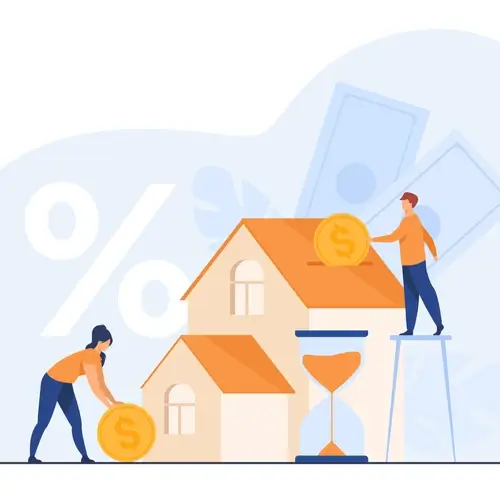

If you’ve been saving to buy a house, rising home prices and interest rates over the past year can make homeownership seem out of reach. Inflation that has reached 40-year highs does not help either. Before you give up on breaking into the housing market, ask yourself how much do you really need to save before you buy?
There are several costs associated with homeownership, some of which are due upfront and some that are paid over the life of the mortgage loan.
Down Payment
This is the big one that people worry the most about. A down payment is the amount of money you contribute upfront to the purchase of a home. While you may have heard that a traditional down payment is 20% of the purchase price, there are plenty of loan programs designed for first-time buyers that require way less. Government sponsored entities Fannie Mae and Freddie Mac both offer conventional mortgages with a 3% down payment minimum. That makes a huge difference in how much you need to save. For example, if you are looking to buy a home for $300,000, a 20% down payment would be $60,000, but a 3% down payment would be just $9,000, a much more attainable sum.
There are also government-backed FHA loans that only require you to put 3.5% down as long as you have decent credit. If you qualify for a VA loan, in many cases you will not have to contribute anything as a down payment. There are even down payment assistance programs that find funding for you through non-profit organizations.
Closing Costs
Closing costs are the other fee you will need before the loan closes. These are the charges associated with creating your mortgage loan and they include fees for origination, appraisals, credit reports, applications, title search, title insurance, and underwriting. The amount can vary widely by region, but you can expect to pay between 2% to 5% of the loan total in closing costs. On that same $300,000 loan, that means you could owe anywhere from $6,000 to $15,000. If that seems out of reach, you could try negotiating with the seller to cover some or all of your closing costs. And in many cases, your lender may allow you to roll your closing costs into the mortgage balance.
Mortgage Payment
Once you have saved up your down payment and closing cost amount, you still need to make sure you can afford to be a homeowner. The largest commitment is your monthly mortgage payment. There are plenty of online mortgage calculators that can help you calculate your predicted payment based on your local property taxes and current interest rates. Lenders like your total monthly mortgage payment to be less than 28% of your gross monthly income, so if your projected payment is less than that you should be in good shape. You should also consider any other debts you have though to see if you can afford to keep up with a mortgage as well.
Homeowners Insurance
All lenders require borrowers to have homeowners’ insurance to cover the cost of any damages to the property in case of accident, natural disaster, or other destructive event. As of 2021, the average yearly cost was $1,272, or $106 a month.
Private Mortgage Insurance
If you do not make a full 20% down payment, you will have to pay private mortgage insurance (PMI) to protect your lender against loss. This can be paid in a one-time annual fee, semi-annually, or in monthly payments. The cost varies by region and according to your credit score, but the average range is between 0.5% and 1.5% of the loan amount.
Maintenance
It is also a smart idea to have a little cushion of cash saved up to cover maintenance costs. Repairing things like heating and cooling systems, appliances, and plumbing can add up over the course of a year.
With a more accurate picture of the total amount you need to save before and after you buy a home, hopefully your homeownership timeframe will be clear.
Give us a call today so that we can help you make homeownership a reality.
These materials are not from HUD or FHA and were not approved by HUD or a government agency.
